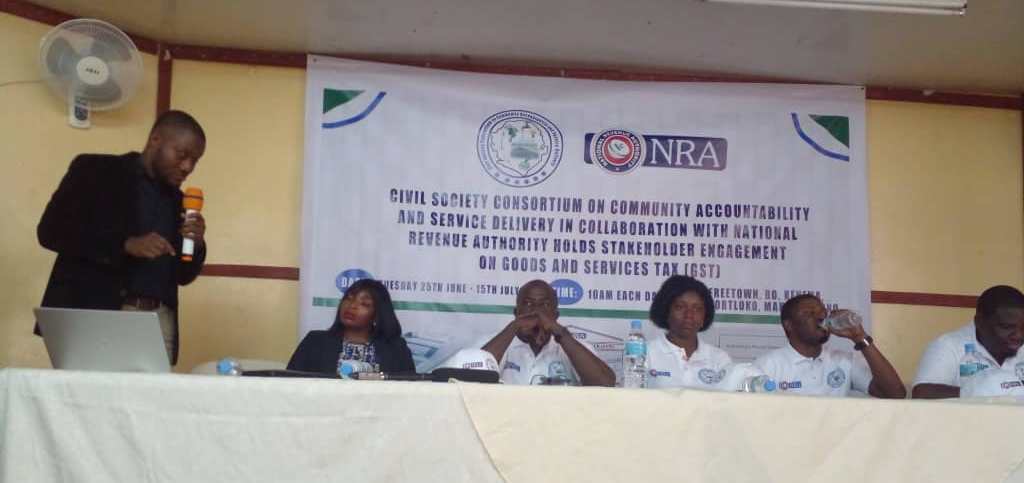By Mohamed K. Turay
The Civil Society Consortium on Community and Service delivery last Tuesday informed journalists that they were in partnership with the National Revenue Authority (NR A) to raise awareness on the payment of the Goods and Services Tax (GST) and the use of the Electronic Cash Register (ECR) machine.
The interactive engagement, which was held at the Buxton Church Conference Hall at Charles Street in central Freetown, brought on board many business houses across the capital who listened to various expertise voices on tax obligations.
William Sao Lamin, the Chairman for the Consortium, recalled being one of the pioneers of the GST and how tax compliance could engineer progress in a country like Sierra Leone where the government still struggles to provide basic amenities for its citizens.
He said if citizens wanted to hold government accountable, they must be willing to meet their tax obligations as “government depends on taxes to cater for the needs of society without which it will be a security risk”.
Mr Sao Lamin urged customers to demand receipts whenever they buy goods so that NRA could get the records of sales from that particular shop, adding that in some countries people willingly pay their tax because of the penalties involved which was a different case for Sierra Leone.
“If we scold the government to provide us with the basic amenities, we must as well urge businesses to make their GST returns and the customer to ask for receipts whenever s/he buys goods”, he noted
Mr Sao Lamin said as CSOs, they were taking a two-prong approach to ensure each party, the government and business houses, meets their obligations; noting that “the Electronic Cash Register Machine ensures accountability and keeps stock of sales on a daily basis”.
Matilda Z. Kamara, the Manager of Tax Service Policy at the Domestic Tax Department-NRA, said the payment of taxes was a must and commended the CSO for adding their voice to the call.
She urged customers to ensure they demand receipts whenever they buy goods as that would be registered on the ECR machine for the payment of the monthly returns to NRA. She said payment was made to NRA based on the returns through the banks.
Ibrahim Turay, the Deputy Director of Legal and Corporate Service-NRA, said, “NRA normally wants the money which is why we are restrained to implement punitive measures because the fines are heavy”. He noted that, “once one complies, there is no need to be afraid of any punitive measures.”
Moses Mambu, the Consortium’s Communications Director, summoned it up all when he stated that the country’s donor dependency would drastically reduce if people were committed to meeting their tax obligations.
The session ended with a question and answer session.


